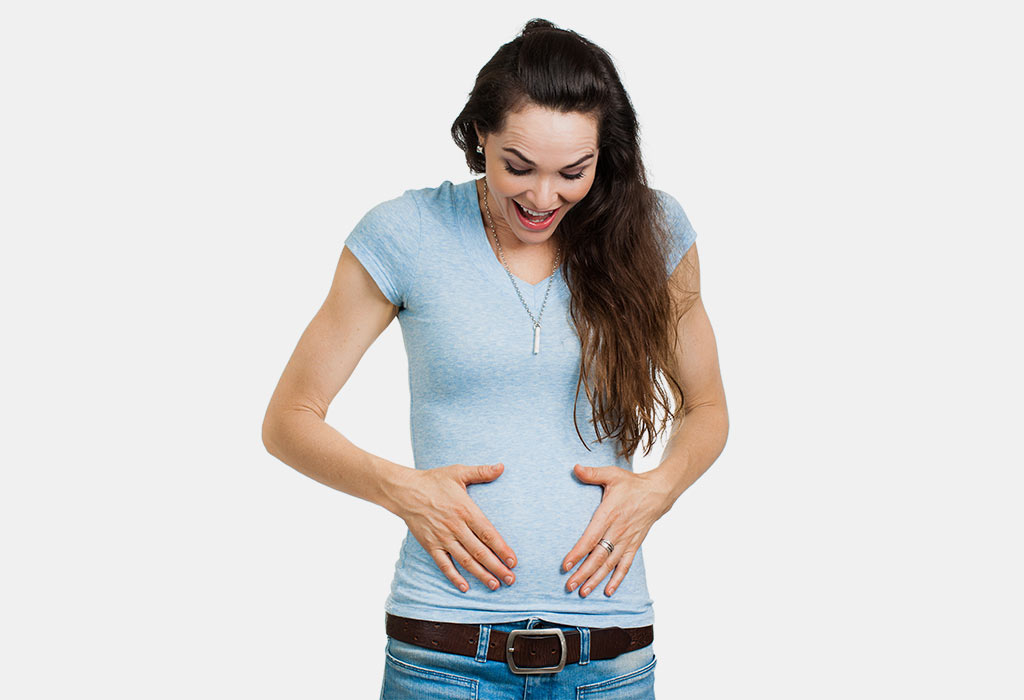In this Article
Finding out that you are pregnant is usually a joyful moment. There might be many signs that you are pregnant from the day of conception, but you may not notice them.
While pregnancy tests are the sought after option, there are a few ways by which you can know with reasonable certainty that you are pregnant. In this article, we will look at how to confirm your pregnancy without a test, for the benefit of expecting parents.
Also Read: How and When to Take a Pregnancy Test
22 Easy Ways to Confirm Pregnancy Without Taking a Test

There are a lot of ways to confirm pregnancy without tests – some involve observing the functions of the body, and others involve understanding how the mother is feeling. Let us take a look at a few ‘symptoms’ of pregnancy.
1. Missing Periods
In most cases, this is the reason women suspect that they are pregnant. When fertilisation occurrs in the uterus, it stops releasing eggs consequently, the woman stops menstruating. Even though missed periods may also be caused due to overeating, stress, and sudden weight changes, it is worth taking a look at if you have been trying to conceive a baby.
2. Spotting
Spotting refers to the phenomenon where bleeding occurs between a woman’s menstrual cycle. When the fertilised egg implants itself on the wall of the uterus, light bleeding occurs through the vagina. This is usually a couple of weeks after the woman’s last period. Spotting is usually a concrete sign of pregnancy, so it is best to consult the doctor if you observe blood at a different time than expected.
Spotting can sometimes also be accompanied by light cramping, which indicates that the egg has implanted itself along the lining of the uterus. Since spotting and cramping can be easily mistaken for the start of another period, here is how you can assess if your cramps are a result of implantation occurring in your uterus:
- Your cramps might feel like pricks
- Your cramps might feel like pulls
- You might have a tingling feeling as a cramp
Implantation cramps may occur 6-12 days after your ovulation has occurred, which is usually also when a period begins, so make sure you assess what your cramps feel like. Remember that these cramps are not severe; if you feel severe cramping in your abdomen, call a doctor immediately.
3. Vomiting
Another common sign that a woman is pregnant is morning sickness. It is when a woman gets sick right after waking up and ends up vomiting for the slightest reason. It is caused due to the rising levels of the hormone in the woman and occurs around three weeks after fertilisation has occurred.
4. Feeling Full
Very early during pregnancy, women might feel unnaturally full even without having consumed a small amount of food. This feeling may be accompanied by excessive belching, flatulence and intestinal cramps. As the progesterone levels in the body rise, it affects the digestive tract and results in bloating .
5. Sensitive Breasts
Another early sign of pregnancy is sore breasts. They become tender and swollen and the nipples become tingly at the lightest touch. The colour of the nipple might also turn darker, and there may be small spots around the area. These spots are usually white in colour.
6. Urination
Hormonal changes occur in a woman’s body whenshe is pregnantbecause of which they feel the need to urinate at a much higher frequency than normal. A pregnant woman might have to rush to the washroom every half an hour, owing to increased blood circulation and higher levels of water retention in the body.







